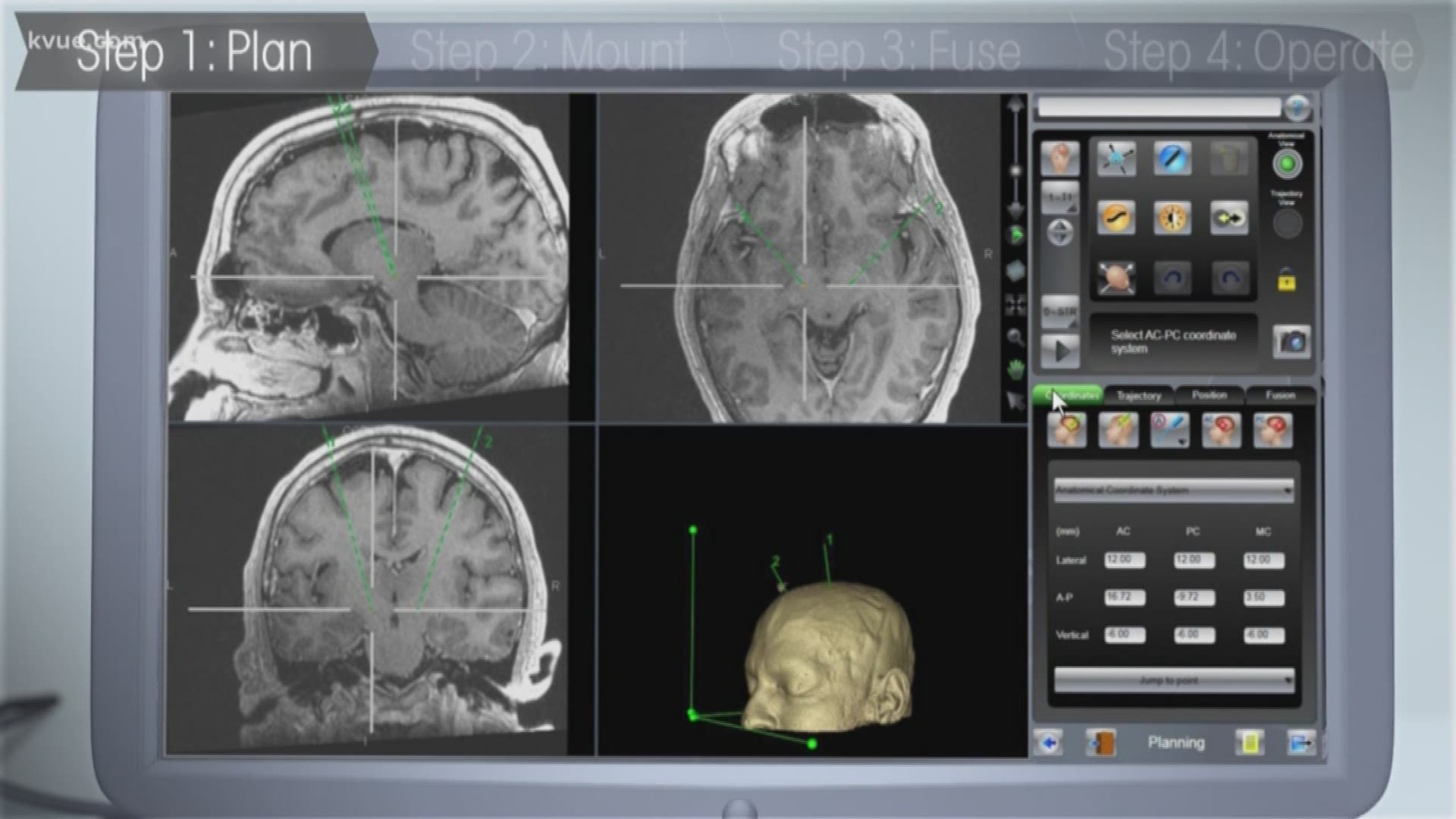LAKEWAY, Texas — An Austin man is the first in Texas to undergo a new surgery to treat his severe tremors stemming from Parkinson's disease.
Jario Molina, 49, was diagnosed with Parkinson's in 2010. His tremors progressively got worse over the years.
"It got pretty bad pretty quick," said Molina.
He couldn't do the little things.
"It's a chore. From brushing your teeth to taking a shower," Molina explained.
He even had to quit his job as an HVAC technician. Getting down from the roof became tough and dangerous.
Worst of all, he couldn't play with his 7-year-old son.
"I just fall over. I try, I try my hardest to play soccer with him in the yard," Molina said emotionally.
It got to the point where he thought about death.
"It was nine in the morning and I'm looking out the window, looking out my window, I look at my son, 'I don't know if I am going to be here for you,' but now I am," Molina said through tears.
But then he met neurosurgeon Dr. Mark Burnett and heard about a new procedure to treat the tremors.
Baylor Scott & White in Lakeway is the first hospital in Texas to combine imaging and a robot for this surgery. It's called the Deep Brain Stimulation System.
"The robot and imaging allowed us to get to the meat of the surgery quickly and thereby able to quickly merge a two-stage procedure into a one-stage procedure," said Dr. Burnett.
Now, Molina's returning to his life. He's going back to work as a HVAC technician next week. And he's even back to doing the one thing he's missed the most: playing soccer with his son, Dylan.
Dr. Burnett said the government is encouraging Parkinson patients through Medicare to undergo the new procedure. He said the reasons patients don't is one, there aren't enough medical centers doing this procedure, and second, the old procedure scared them away.
"Many patients are scared about being awake during surgery, about having a frame bolted to their head to keep them still, having to come off their medication before the surgery and, a bit like the dentist, you are aware of the surgery going on around you," said Dr. Burnett.

